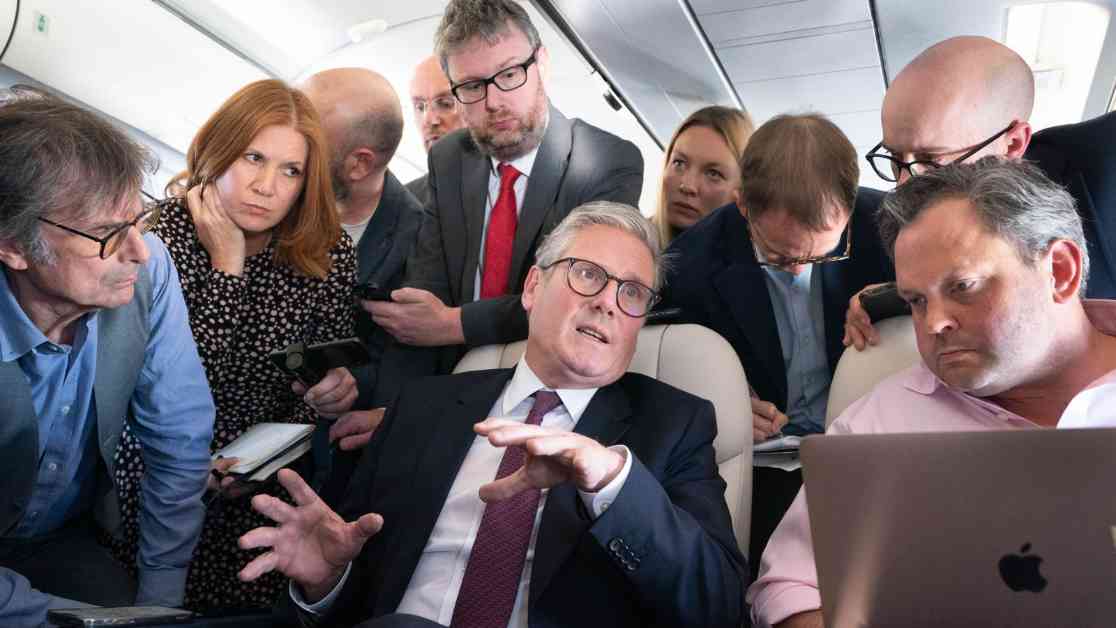Sir Keir Starmer, the leader of the Labour Party, has made a bold statement regarding the ongoing conflict in Ukraine, asserting that Russia initiated the war and has the power to end it immediately. As tensions continue to escalate between Russia and Ukraine, with the threat of NATO involvement looming, Sir Keir’s remarks come at a crucial moment in international relations. Prime Minister Boris Johnson is scheduled to meet with President Joe Biden in Washington DC to discuss the situation, highlighting the urgency of finding a resolution to the conflict.
Russia’s Role in the Ukraine War
Sir Keir Starmer’s assertion that Russia is responsible for starting the war in Ukraine echoes the sentiments of many world leaders who have condemned Russia’s actions. Russian President Vladimir Putin’s decision to launch a full-scale invasion of Ukraine in February 2022 has sparked outrage and condemnation from the international community. The conflict has resulted in significant loss of life and destruction, prompting calls for a peaceful resolution to the crisis.
The Impact of NATO Involvement
Vladimir Putin’s warning that allowing long-range weapons to be used against Russia would draw NATO countries into the conflict has raised concerns about the potential for further escalation. The threat of NATO involvement in the conflict has added a new layer of complexity to the situation, with world leaders grappling with how to respond to Russia’s aggressive actions. The UK and the US have been providing support to Ukraine, including weapons and training, but have been cautious about escalating the conflict further.
Diplomatic Efforts to End the Conflict
In an effort to find a peaceful resolution to the conflict in Ukraine, diplomatic efforts have been underway to engage with key stakeholders and find a way to de-escalate tensions. UK Foreign Secretary David Lammy and US Secretary of State Antony Blinken recently met with Ukrainian President Volodymyr Zelenskyy in Kyiv to discuss the situation and explore potential solutions. The international community is working together to address the crisis and prevent further bloodshed.
As world leaders grapple with the complexities of the conflict in Ukraine, the need for a diplomatic solution has never been more urgent. The ongoing violence and humanitarian crisis in the region demand a concerted effort to find a peaceful resolution that respects the sovereignty of Ukraine and upholds international law. Sir Keir Starmer’s call for Russia to end the conflict immediately underscores the importance of holding those responsible for the violence to account and working towards a lasting peace in the region.
The conflict in Ukraine has had far-reaching implications for global security and stability, with the threat of a wider conflict involving NATO and Russia looming large. The international community must work together to find a peaceful resolution to the crisis and prevent further escalation of violence. As world leaders meet to discuss the situation and explore potential solutions, the need for diplomacy and dialogue has never been more critical.
In conclusion, Sir Keir Starmer’s remarks on the conflict in Ukraine highlight the urgent need for a peaceful resolution to the crisis. As world leaders continue to engage with key stakeholders and work towards de-escalating tensions, the international community must remain committed to upholding the principles of peace, security, and respect for international law. The conflict in Ukraine serves as a stark reminder of the importance of diplomacy and dialogue in resolving conflicts and preventing further bloodshed.













